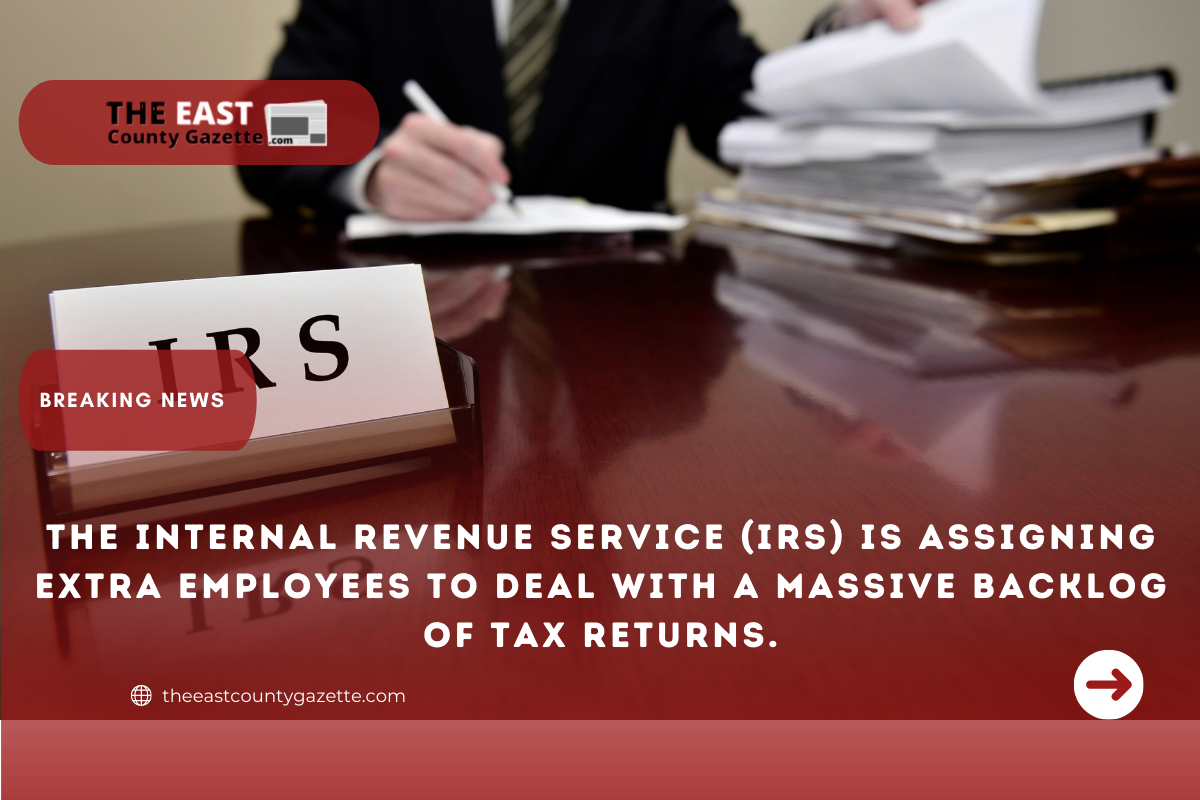The Internal Revenue Service (IRS) is assigning extra employees to deal with a massive backlog of tax returns.
In order to deal with the massive backlog of tax returns from the previous year, the Internal Revenue Service is reassigning staff to deal with the mountains of unprocessed paper that has accumulated.
However, the Internal Revenue Service confronts an uphill battle, and it appears that Congress will not provide much assistance in the foreseeable future.

Erin Collins, the National Taxpayer Advocate, recently informed members of the Senate Finance Committee that the agency must return to a “stable and healthy condition” in order to carry out its primary job.
Collins informed the panel members on Thursday that the tax-collecting agency had around 23.5 million tax returns and other documents in its inventory as of early February, including letters that required human processing, according to Collins.
It has been reported that “all paper and electronic individual refund returns received before April 2021 have been completed if the return contained no problems and did not require additional scrutiny,” according to her statement.
Nonetheless, she stated that “by implication, this means that tax returns that were filed as recently as April of last year are still awaiting review.”
The Internal Revenue Service has taken initiatives to reduce the backlog and prepare for the current tax filing season, which began late last month and will expire on April 18.
Among the steps is the assignment of around 1,200 staff to assist with the processing of amended returns and correspondence. She also stated that the agency is now putting together a “second surge team to dedicate more resources to processing problems.”
Meanwhile, Collins stated that the Internal Revenue Service has announced a “welcome halt” to many of the automated notices it sends out in order to keep up with the backlog. However, she asserted that paper returns are the IRS’s kryptonite: “The Internal Revenue Service continues to transcribe paper line by line, number by number.”
The Internal Revenue Service recently announced that it was abandoning plans to close a tax processing center in Austin, Texas, in 2024. A similar factory in Fresno, California, was shuttered by the company the previous year.
According to Tony Reardon, president of the National Treasury Employees Union, which represents IRS employees, “We applaud the IRS for finally recognizing that those employees in Austin are essential to the agency’s ability to dig out from under the backlog of returns and correspondence and that there is an ongoing need for the IRS to retain this capability.”
The Internal Revenue Service (IRS) has also contracted out certain clerical tasks, such as opening envelopes, and is compelling some workers to work mandatory overtime.
More work is being done with fewer employees.
Additionally, the IRS has been tasked with the responsibility of sending out three rounds of COVID-19 relief payments in the past two years, as well as the distribution of advance earned income tax credits to eligible families, which has added to the complexity of dealing with individual and business tax returns in general.
According to an analysis by the left-leaning Center on Budget and Policy Priorities, the IRS’s staff has shrunk by 22 percent since 2010, and the budget has shrunk by 20 percent as a result of the reduction.
Republicans, according to Senate Finance Committee Chairman Ron Wyden, D-Ore., are to blame for this as they cut the IRS’s budget while in control of the House of Representatives.
According to Wyden, “Republicans might have changed course and addressed these flaws in their landmark 2017 tax legislation.” “They did not do so. As a result, the budget cuts continued, and the tax structure became more complex.”
Sen. Mike Crapo, R-Idaho, the committee’s ranking Republican, argued that “over the years, I believe that the IRS budget has very much kept up with inflation.”
A 14 percent increase in funding for the Internal Revenue Service (IRS) budget for the current fiscal year was suggested by the Biden administration, which also wanted an extra $80 billion increase over a 10-year period as part of its now-stalled Build Back Better plan.
Nevertheless, Congress has not yet taken action on the fiscal year 2022 budget, instead of enacting a series of temporary spending measures that have essentially frozen IRS funding at the levels of the fiscal year 2021.
And, despite indications that a longer-term agreement is in the works, Republicans have warned that any large increase in IRS funding would be a “poison pill” that they would vote against.

